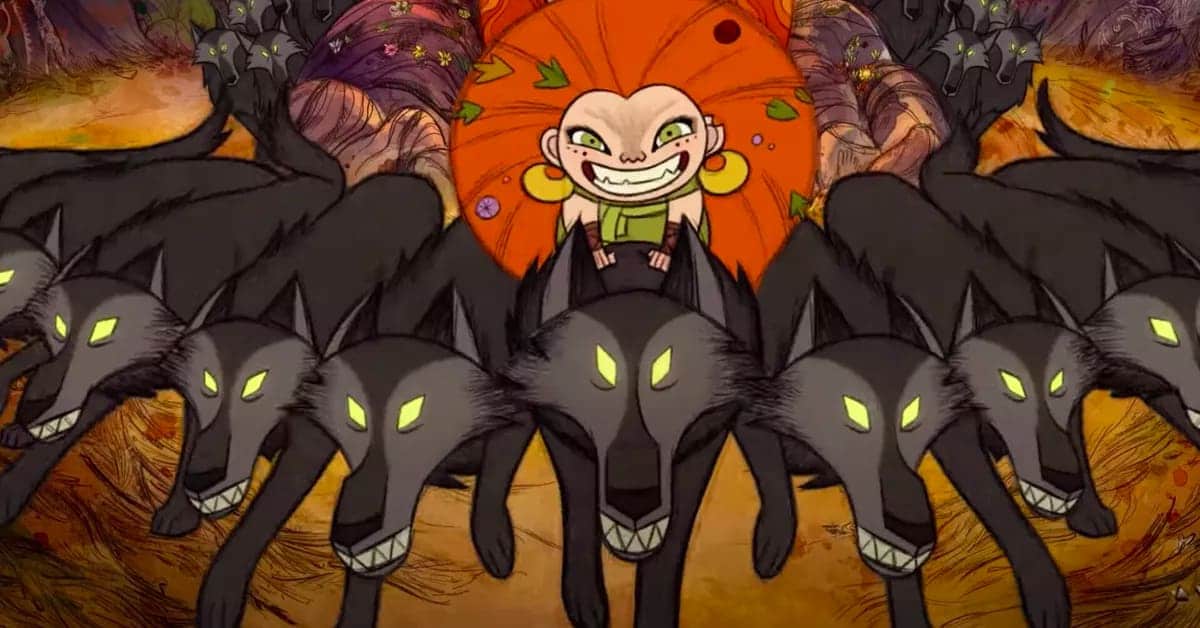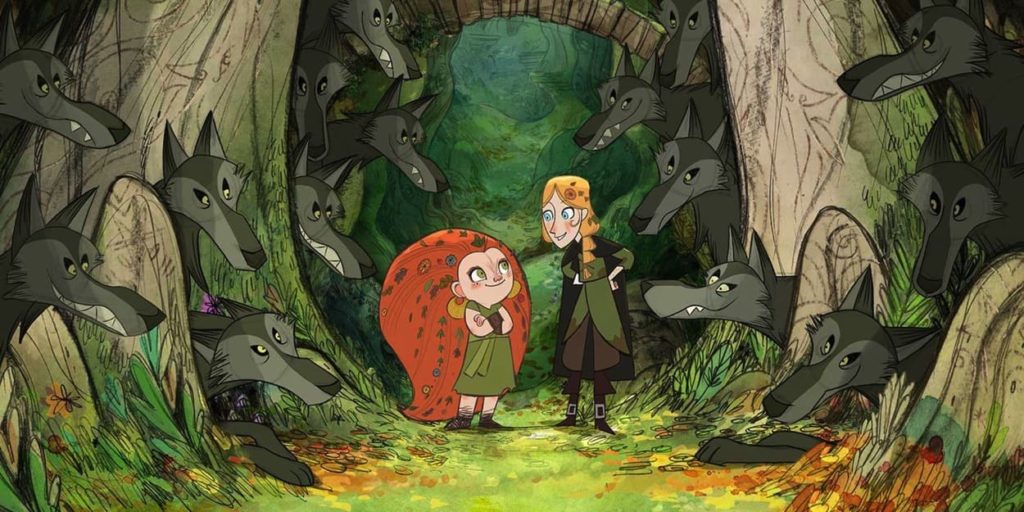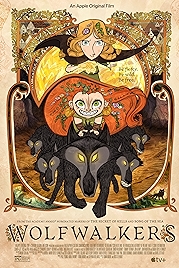Kings of Irish animation Cartoon Saloon bring their Irish Folklore Trilogy to a close with Wolfwalkers, a rousing big finish after The Secret of Kells (2009) and Song of the Sea (2014).
It’s closer in spirit to Song of the Sea, which was about a shapeshifting sea creature known as a selkie, than Kells, which was set in an Irish monastery where enthusiasm, bizarrely, was shown to trump actual craft and learning when it came to illuminating ancient manuscripts.
This time, co-writer/director duo Tomm Moore and Ross Stewart have repurposed an old legend about “wolf men” from Kilkenny, where their studio is based, to tell the story of human beings who release their inner wolf to walk at night while they sleep. And lying under that dual relationship is another, of the tortured past of the Irish and the English: colonisers, settlers, disrupters, oppressors. Ireland was the country where England learned how to become an imperial power.
Oliver Cromwell – scourge of Ireland – is never named but is clearly referenced in the character of the Lord Protector (voiced by Simon McBurney, a master at playing the snide bully), whose underling Bill Goodfellowe (Sean Bean) has been brought over from England to wipe out the wolf population. His daughter, Robyn (Honor Kneafsey), like many a heroine before her in the recent animationsphere, bridles at being ordered to stay indoors and do household chores rather than run free. She wants to do boy stuff.
And so Robyn disobeys, which throws her into the realm of the wolves, just as her father is setting traps and organising their mass extinction. But Bill has not reckoned on the power of the supernatural. Nor has Robyn, who accidentally strikes up a friendship with a wolfwalker called Mebh (the Irish spelling of Maeve).
Though the Irish are the oppressed in this story, it’s the wolves who are on the receiving end of the violence. In the classic “divide and rule” tactic the English would deploy throughout their eventual empire, suddenly it’s the wolves who are the problem for the local folk, rather than the massive system of oppression put in place by the Lord Protector.
Moore and Stewart tread carefully here, not wishing to open old wounds. There is nothing now to be gained in any case.
Most eyes, in any case will be drawn to the glories of the hand-drawn animation, which is really what all this Irish Folklore series is about. Again, what’s on offer is an eclectic mix of styles, with Richard Williams’s The Thief and the Cobbler the most immediate source of inspiration, though Disney’s Snow White, any number of Studio Ghibli’s stories about imperilled youngsters and the blocky characters of Halas and Bachelor’s Animal Farm are also sources of inspiration, while Moore and Stewart’s experiments in flattened perspective recall pre-Renaissance painting (an influence on Richard Williams also).
The style is deceptively simple but the technique is not. That’s what makes the Cartoon Saloon’s output so distinctive. While characters in the foreground, people and animals mostly, are bold and simple, the backgrounds are almost insanely detailed – the further back you go, the busier it gets. It makes for a viewing experience that will withstand, and reward, repeated watching.
My personal favourite of this trio is Song of Sea, which shared Wolfwalkers’ enthusiasm for shapes reminiscent of an Irish harp, then this, and trailing quite a way behind The Secret of Kells, whose animation was glorious but its story about young women bucking the system (also echoed in Wolfwalkers) would have been more exhilarating if it hadn’t been the go-to narrative for too many animations. Brave, Mulan, Pocahontas, and so on.
Wolfwalkers: the Graphic Novel (by Tomm Moore and Ross Stewart – Buy it at Amazon
I am an Amazon affiliate
© Steve Morrissey 2021


